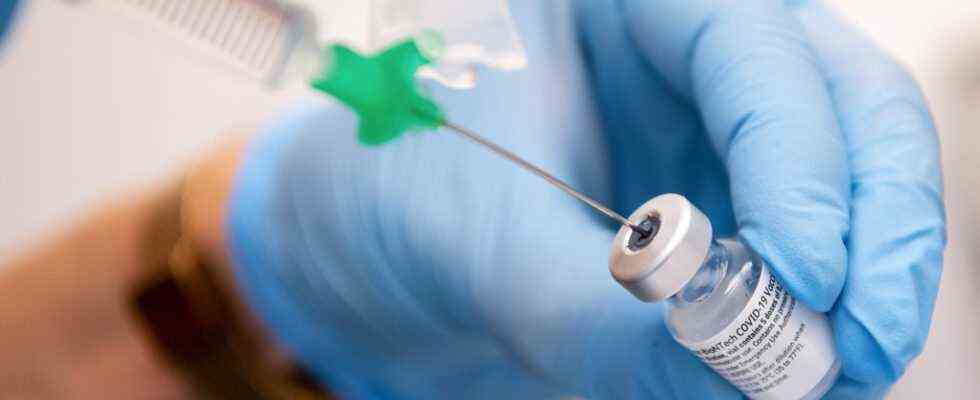Status: 07/01/2021 4:49 p.m.
After a first vaccination with AstraZeneca, the vaccination committee now recommends BioNTech or Moderna as a second dose regardless of age. With a view to the Delta variant, she warned that the second vaccination should be “timely”.
The Standing Vaccination Commission (STIKO) has adjusted its vaccination recommendation for a second vaccination after a first AstraZeneca dose. In future, regardless of their age, those willing to vaccinate will receive an mRNA vaccine such as BioNTech or Moderna with the second injection, the committee announced. The interval between the first and second dose should then be at least four weeks.
The recommendation applies “subject to the feedback from the comment procedure that has yet to be opened,” it said. The experts justify this advice by stating that the immune response after the administration of two different preparations – first vector, then mRNA vaccine – is “clearly superior” to the immune response after two doses of AstraZeneca.
Experts speak of a heterologous vaccination schedule. The STIKO had previously only recommended this to younger people who had already received an initial vaccination with AstraZeneca before the vaccine was only recommended for people aged 60 and over.
STIKO: Well protected against Delta after a second vaccination
The STIKO emphasized that in view of the spread of the significantly more contagious Delta variant, it was important to take the second vaccine dose “on time”. After just one dose of vaccine, protection against Delta appears to be “significantly reduced”. After a complete vaccination, the protection against severe disease courses by Delta is similarly good compared to the protection against other corona variants, it said, citing data from the United Kingdom.
As a recommendation for the intervals between the two required vaccine doses as the Commission now offers: three to six weeks at Biontech / Pfizer, four to six weeks at Moderna, nine to twelve weeks at AstraZeneca (if someone should be vaccinated twice with it) and ” from four weeks “with the combination of AstraZeneca and mRNA vaccine.
The STIKO goes further with its recommendation than the European Medicines Agency (EMA). She had stated that she could not make a recommendation to use other vaccines for the second vaccination. It currently looks like all four vaccines available in the EU would offer protection against the different variants of the coronavirus.
Spahn plans with more than 200 million vaccine doses
Federal Health Minister Jens Spahn had already announced on Wednesday that he wanted to procure a total of 204 million corona vaccine doses for the coming year. This will be enough for two doses of vaccine per inhabitant and for an additional safety buffer, said the CDU politician. He also held out the prospect of an early end to the vaccine shortage: Then the vaccination centers and practices could be supplied with as much vaccine as they needed. Germany wanted to “rely on several horses” when procuring vaccines in order to secure long-term supply.
In connection with long-term vaccine procurement, Spahn spoke of a “two-plus-two strategy”. The planning for 2022 included the two mRNA vaccines from BioNTech and Moderna as well as the protein-based vaccines from Sanofi and Novavax, which have not yet been approved. In addition, there is a smaller contingent of the vector vaccine from Johnson & Johnson. The European Union announced in May that it did not want to extend its contract with AstraZeneca for the time being.

